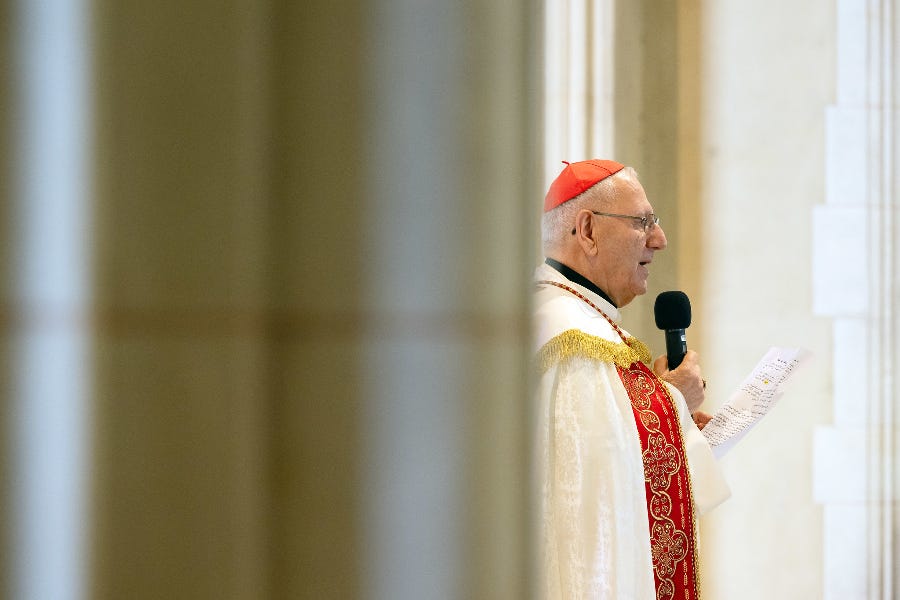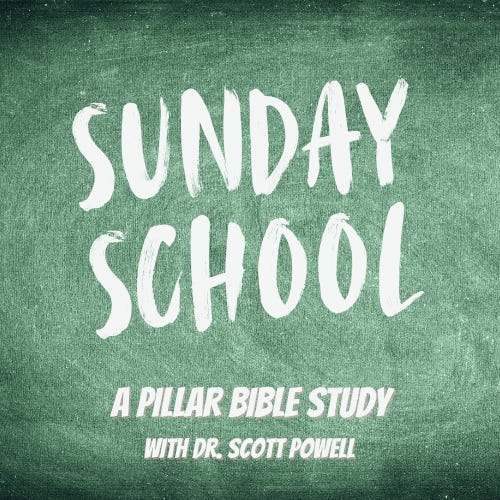Bishop Athanasius Schneider, auxiliary bishop of Astana, Kazakhstan, grabbed attention last week when he said that QR codes used to show COVID-19 vaccine status in some countries could be “a prefiguration of the sign of the Beast.”
The bishop’s remarks referenced the apocalyptic “Mark of the Beast” described in the Book of Revelation.
Schneider, who has in recent months made headlines for criticisms of the Second Vatican Council and calls for priests to celebrate the Extraordinary Form of the Mass in a “clandestine manner,” is not the only one to make pandemic claims about the “sign of the beast.”
Concerns that COVID-19 vaccines could be connected to the biblical Mark of the Beast have circulated among some Catholic and Evangelical commentators, and on social media, since the vaccines made their debut last year.
You’ve heard of the “Mark of the Beast.” But what is it, really?
The concept comes from the Book of Revelation, which describes a powerful beast which arises from the earth and takes authority over the people, forcing them to commit idolatry and requiring them to mark themselves with his sign in order to buy or sell goods.
Scripture says: “And he causes all, the small and the great, the rich and the poor, and the free and the slaves, to be given a mark on their right hands or on their foreheads,and he decrees that no one will be able to buy or to sell, except the one who has the mark, either the name of the beast or the number of his name.”
Claims to identify the apocalyptic mark are nothing new, they have frequently arisen throughout history.
So what else has been called the Mark of the Beast? We made a little list:
Roman coins
Some New Testament scholars have suggested that the Mark of the Beast referenced in Revelation was connected to the coins of the Roman Empire.
The coins were stamped with the image of the emperor, who was believed to be divine. Early Christians rejected belief in the emperor’s divinity, but were still required to use the coins to engage in commerce in the ancient Roman world. During the First Jewish Revolt in 66 AD, the Jews created their own coins as a sign of their separation from Rome and its authority and beliefs.
Credit cards
In the 1960s, some Christian groups thought that credit cards were the Mark of the Beast. In pamphlets circulated by these groups, they warned people to resist getting the cards, which would include an identifying number and could become indispensable for buying and selling. Among their arguments was the claim that when the number 666 - identified as the number of the beast in Revelation - was broken down into the Roman, Greek, and Babylonian alphabets, it appeared to spell out the word “VISA.”
Barcodes
UPC barcodes became widespread in labeling goods for sale in the 1970s.
In “The New Money System: 666,” author Mary Stewart Relfe argued that barcodes were the Mark of the Beast and were a precursor to the creation of a totalitarian world government. Objections to the new bar code system were significant enough that the creator of the UPC, George Laurer, addressed them on his website, rejecting any claims of biblical significance attached to the codes.
A Social Security number
A few years ago, a Christian fundamentalist named Donald Yeager disavowed his Social Security number, believing that being identified by the number was the Mark of the Beast. Yeager later sued an electric company in Pennsylvania when it refused to process an internship application he had filed without a Social Security number. Yeager claimed his religious rights were being violated. A district court - and later an appeals court - disagreed with him.
Worshipping on Sundays
Seventh Day Adventist scholars believe the Mark of the Beast will be mandatory worship on Sundays, stemming from the Catholic Church, which they believe to be the beast described in the Book of Revelation.
Those scholars hold that the Catholic papacy substituted human authority for divine authority and changed the idea of the Biblical Sabbath from Saturday to Sunday, in violation of God’s commands.
Microchips
Used for decades in animal identification, implanted microchips have been proposed - and in some places offered - in humans in recent years as well. The technology has the potential to replace car and office keys, ID cards, events tickets, and medical records, but it has also raised concerns about privacy and the potential for mass surveillance. Over the years, numerous Christian voices have theorized about the Mark of the Beast taking the form of some type of government-mandated microchip.
No middle ground
Might there be any truth in any of these claims? What exactly is the Mark of the Beast, and how are we to identify it? Should we be worried about new technology and its potential to align us with the antichrist?
Probably not, according to Scripture scholars, who emphasized that trying to identify something specific as the “Mark of the Beast” in modern times is not coherent with a proper understanding of Revelation.
“Anyone trying to identify ‘the Mark of the Beast’ with a contemporary issue, policy, or person is fundamentally misunderstanding the literary genre in which the book of Revelation was written,” said Fr. Thomas Esposito, O. Cist., a Scripture professor at the University of Dallas.
“Apocalyptic literature, of which Revelation is the prime early Christian example, was concerned more with past events and the immediate present sufferings of the author and his fellow Christians than with prophetic declarations about the future,” he told The Pillar.
“The wild creatures and cryptic symbolism are not meant to be fodder for every new generation to interpret as it wishes; the central message of the book is that Christ, the Lamb, has already conquered the forces of Satan, and that those Christians who are suffering persecution under the Roman Empire need only persevere in faith, even if martyrdom beckons, to share in the eternal joys of the Lamb at the wedding feast.”
Dr. Joshua Noble, a tutor at Thomas Aquinas College who specializes in biblical studies, agreed.
“Given that the imagery of Revelation is primarily directed at the situation of its contemporary audience, there is little reason for people today to be looking around for some specific modern practice that will be THE predicted ‘Mark of the Beast’; to do so would be, in my opinion, to misread Revelation,” Noble told The Pillar.
Esposito and Noble both said Revelation 13 is widely understood by Biblical scholars to be discussing aspects of the Roman Empire.
“The seven heads of the beast is explained as ‘seven mountains’ in Rev 17:9, the seven hills of Rome, and the number of the beast, 666, is most commonly interpreted as standing for the name of the emperor Nero,” Noble explained.
The mark of the beast is contrasted with the “seal on the foreheads” of those who are faithful to God, which is identified in Revelation as the name of the Lamb and his Father’s name, he added.
“It is unlikely that either of these marks should be interpreted as a literal, physical mark or inscription; instead, they seem to symbolize one’s belonging either to God or to the beast, the imperial system with its ruler cult,” Noble said.
The message for a modern audience is that “one can belong to God or one can belong to the beast – there is no middle ground.”
He noted that “Revelation does offer a continuing and relevant warning about unthinkingly participating in oppressive systems for the sake of convenience or economic gain.”
“Is the COVID vaccine an instance of that? My judgment would be no, but that question is one beyond the scope of biblical exegesis,” he said.
Esposito stressed that John, the human author of Revelation, “did not intend to give Christians in future ages a chance to identify the locusts, or the whore of Babylon, or the mark of the beast with their pet protests against technology, or Communism, or President Biden, or the Covid vaccine. By what authority could someone feel compelled to ‘find’ the Covid vaccine previewed in the mark of the beast? Their own personal claim to interpret Scripture as they wish - not exactly the Catholic ideal!”
“To be sure, the Church teaches that the forces of evil will persist in their futile rebellion until the second coming of Christ, and the Devil will adopt any means necessary to destroy the fruits of Christ's resurrection. But the book of Revelation is a timely reminder to a persecuted community of first century Christians that they need only stay the course, because the victory has already been won,” Esposito said.
“Respecting the nature of the book means that we should seek greater union with the Lamb, rather than inventing new ways to distort the text.”




